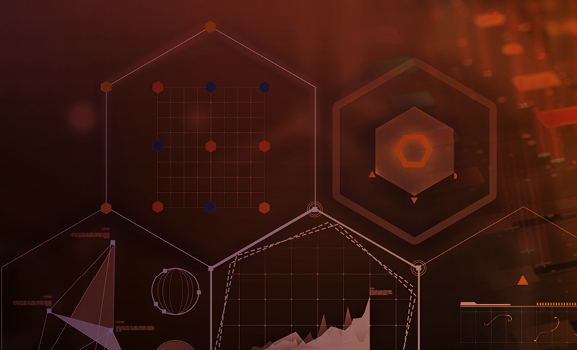- WHAT WE DO
Additional Services

- Industries

Case Study: Multilingual Retail Marketing
New AI Content Creation Solutions for a Sports and Apparel Giant

- RESOURCES

- WHO WE ARE

What We Do Home
Generative AI
- AI Translation Services
- Content Remix
AI Data Services
- Aurora AI Studio™
Machine Translation
- MT Tracker
Instant Interpreter
Customer Onboarding
Translation Service Models
Content Services
- Technical Writing
- Training & eLearning
- Financial Reports
- Digital Marketing
- SEO & Content Optimization
Translation Services
- Video Localization
- Software Localization
- Website Localization
- Translation for Regulated Companies
- Interpretation
- Instant Interpreter
- Live Events
- Language Quality Services
Testing Services
- Functional QA & Testing
- Compatibility Testing
- Interoperability Testing
- Performance Testing
- Accessibility Testing
- UX/CX Testing
Industries Home
Life Sciences Translations
- Pharmaceutical Translations
- Clinical Trial Translations
- Regulatory Translations
- Post-Approval Translations
- Corporate Pharma Translations
- Medical Device Language Services
- Validation and Clinical
- Regulatory Translations
- Post-Authorization Translations
- Corporate Medical Device Translations
- COA Translation Services
Banking & Finance
Retail
Luxury
E-Commerce
Games
Automotive
Consumer Packaged Goods
Technology
Industrial Manufacturing
Legal Services
Travel & Hospitality
Insights
- Blog Posts
- Case Studies
- Whitepapers
- Solution Briefs
- Infographics
- eBooks
- Videos
Webinars
Lionbridge Knowledge Hubs
- Positive Patient Outcomes
- Modern Clinical Trial Solutions
- Patient Engagement
- AI Thought Leadership
SELECT LANGUAGE:
Connecting Patients to Healthcare and Community Services
As the COVID-19 pandemic has transformed many aspects of daily life, interpretation services have become even more integral to the field of healthcare. Listen to a discussion on interpretation and the healthcare industry between Rebecca Wilkie, Senior Associate of Events at Lionbridge, and Susan Gryder, Director of Sales for Over-the-Phone Interpretation.
Read some of the highlights from Wilkie and Gryder’s conversation below, and check out the full podcast to learn the answers to questions like:
- Which languages are most prevalent in healthcare and community interpretation?
- What is the role of an interpreter in a healthcare or social services setting?
- How has COVID-19 impacted the interpretation industry?
What do we mean by community interpretation?
Community interpretation is providing interpretation for individuals who are what we call LEPs, or Limited English Proficient People, as they move through their lives in the community. It’s a bit different from providing interpretation for say, a business or a call center where people who call in are using a particular product. Community interpretation is for everybody in a community, with all the languages they speak, interacting with government and healthcare and other services they need to conduct their daily lives.
Is the preparation and training for healthcare interpreters different from other interpreters?
It is. If you’re a healthcare interpreter, you need know a lot of specific medical terminology and need to have an understanding of medical procedures. You need to know what happens in, for example, a visit with a doctor or preparation for surgery or in an emergency room. And because the situation can often be life or death, the interpreter needs to be ready for any kind of medical terminology that’s needed.
Even beyond understanding the terminology or the subject matter, healthcare and community interpreters need to have good training so they understand how to react in high stress situations. They need to know how to fulfill their role as an unbiased communicator when the situation is stressful or when someone’s life or well-being is involved. It’s a high-stress kind of situation, and one that requires great confidence, empathy and a good command of the terminology and the situation that they’re going to interpret.
What is a cultural broker?
An interpreter is usually an unbiased renderer of the message between two speakers. But there is another aspect of healthcare interpreting that’s really unique to healthcare: Occasionally, an interpreter will be asked to be a cultural broker. In that situation, an interpreter may be called upon to explain to a doctor what some of the cultural implications of a patient’s behavior are. It’s tricky for an interpreter because they need to be able to provide that cultural background information that allows the doctor to do their job, but they can’t let it roll over into expressing an opinion or advocating for a particular treatment. It’s a tricky line that interpreters are often asked to walk in healthcare situations.
Again, that speaks to importance of providing good training for the interpreters. They need to have solid footing in their own role in the interaction and know how to provide that cultural background information if requested. They need to know how to keep their own feelings and opinions out of it.
What do you see as the future of healthcare interpretation?
During the pandemic, telemedicine and more remote administration of healthcare have become more prevalent. I don’t think those things are going to go away, even though people are eager to get back and see people in person. A certain amount of remote and video provision of medical service will continue because it’s a good way to see patients in a more rural area, for example, where there may not be that many options for healthcare. And interpreters will also always be a part of that. There are plenty of speakers of other languages even in rural areas where they will need to call on an interpreter to help them have a healthcare appointment.
The remote aspect of healthcare delivery and the need for interpreters that go along with that is not going to go away. It’s going to be a new mode of delivery that we’re all going to become more comfortable with in the future and continue to use.
Listen to the full podcast here to learn more.





